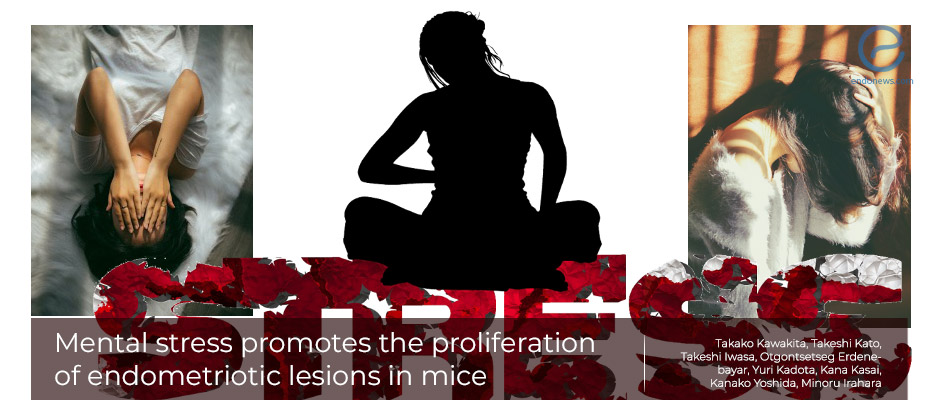Mental stress promotes mice endometriosis
Aug 24, 2020
Chicken or egg? Which comes first, endometriosis or stress?
Key Points
Highlights:
- Endometriosis and stress, like chicken and egg, affect each other and make the other grow bigger.
Importance:
- The authors highlight the role of inflammation on endometriosis and the effect of mental stress on both inflammatory reaction and the growth of endometrial lesions.
What's done here:
- The experiments were conducted on mice endometriosis model, and later mice were subjected to mental stress conditions.
- The mice were grouped as "stress + transplant" groups and "transplant" groups.
- The size of endometrial lesions created on mice, inflammatory cytokines, and inflammation-related enzymes measured to analyze the effect of stress on inflammation and endometriosis.
Key Results:
- In the "stress + transplant" group, the total lesion size increased and the distribution of lesions in the peritoneal cavity was widespread.
- In the "stress + transplant" group, monocyte chemoattractant protein, Microsomal prostaglandin E synthase expression, and TNFα levels were higher.
Limitations:
- The levels of inflammatory cytokines might differ between mice and humans.
- The results should be repeated with further studies including clinical studies.
- The results of the study do not spot the creation of endometriosis in the first place but only highlights a hypothesis on the progression of existing lesions.
Lay Summary
Endometriosis is a disease for which pathogenesis and progression are not fully understood. Inflammation is one of the key candidates that might be related to the creation or progression of endometriosis.
In the study conducted by Kawakita et al from Japan, the relation of mental stress on endometriosis distribution and the inflammatory reaction was examined.
The authors created a mouse model and exposed one group to mental stress, and checked the presence of stress by daily controlled serum cortisol levels. After 14 days all mice including both "stress positive" and "negative" groups were euthanized to measure the size of endometriotic lesions and the levels of inflammatory cytokines with pro-inflammatory enzymes in the peritoneal cavity as well as adipose tissue surrounding the uterus.
The size of endometriotic lesions showed an increase in the stress group, the levels of inflammatory cytokines elevated, monocyte chemoattractant protein levels showed a significant increase in the peritoneal cavity.
The study concluded that mental stress might promote the progression of endometriosis lesions and also cause an inflammatory reaction on the adipose tissue surrounding the uterus. But the mechanism of inflammatory reaction and the stepwise mechanism of stress, endometriosis, and inflammation is still controversial.
The paper was published in a recent issue of the journal "Cytokine".
Research Source: https://pubmed.ncbi.nlm.nih.gov/32768923/
Endometriosis Stress Inflammation Mice

